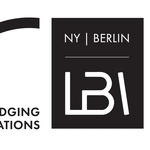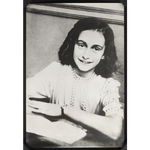The Jewish Renaissance in Weimar Germany

- Tag/Uhrzeit
- –
- Format
- Online
- Eintritt
- Allgemein: Kostenfrei
As the Shared History Project enters its chapter on the Weimar Republic and the beginning of National Socialism, our panelists will discuss how German-speaking Jews seized on the era of cultural freedom ushered in by the Weimar Republic to rediscover, revitalize, and transform Jewish culture and identity in a modern context. Michael Brenner (American University/Munich), Rachel Seelig (University of Toronto), and Kerry Wallach (Gettysburg College) will discuss how diverse strains of Jewish culture – religious and secular, Zionist and non-Zionist, speaking German, Yiddish, and Hebrew – found expression in arts, literature, society, and politics. Miriam Rürup (Moses Mendelssohn Center Potsdam) will chair.
About the Panelists
Michael Brenner is the Seymour and Lillian Abensohn Chair in Israel Studies at American University and Director of AU’s Center for Israel Studies. Since 1997 he has been Professor of Jewish History and Culture at the Ludwig-Maximilians University of Munich. He is the International President of the Leo Baeck Institute for the Study of German-Jewish History and serves on many academic boards, including the Jewish Museum of Berlin, the Israel Institute, the Center for European Studies of the University of Haifa and is board chair of the Franz Rosenzweig Research Center of the Hebrew University in Jerusalem. His nine books have been translated into ten languages and include The Renaissance of Jewish Culture in Weimar Germany; A Short History of the Jews; and his forthcoming In Hitler’s Munich: Jews, Revolution, and the Rise of Nazism. He is co-author of the four-volume German-Jewish History in Modern Times, for which he was awarded a National Jewish Book Award.
Rachel Seelig is a literary scholar, teacher and writer based in Toronto, Canada. Her research focuses on migration, multilingualism, and cross-cultural exchange in German, Hebrew, and Yiddish literatures. She is the author of Strangers in Berlin: Modern Jewish Literature between East and West, 1919–1933 (University of Michigan Press, 2016) and the co-editor, with Amir Eshel, of The German-Hebrew Dialogue: Studies of Encounter and Exchange (De Gruyter Press, 2017). Rachel received her B.A. in Comparative Literature from Stanford University and her M.A. and Ph.D. in Jewish Studies from the University of Chicago. She has held research and teaching appointments at Harvard University, Columbia University, the University of Michigan, the Hebrew University of Jerusalem, and the University of Toronto. Together with her partner, Erol Boran, she writes children's books.
Kerry Wallach is Associate Professor of German at Gettysburg College. Her research focuses on twentieth-century Germany and German-Jewish culture. She is the author of Passing Illusions: Jewish Visibility in Weimar Germany (University of Michigan Press, 2017). In her courses, students learn about Germans, Jews, gender, sexuality, literature, history, film, art, and visual and consumer culture. Currently, Wallach is completing a book about Jewish artist Rahel Szalit-Marcus. Wallach serves on the editorial board of the German Jewish Cultures book series published by Indiana University Press, and on the Academic Advisory Board of the Leo Baeck Institute – New York | Berlin. At Gettysburg, Professor Wallach is an Affiliate of the Jewish Studies Program and also contributes to the Women, Gender, and Sexuality Studies Program.
About the Chair
Miriam Rürup is the Director of the Moses Mendelssohn Center for European-Jewish Studies. Her research interests include German-Jewish history, contemporary history (especially the history and post-history of National Socialism) as well as migration and gender history. In a current research project, she is dealing with the history of statelessness. Rürup is co-editor of the academic journals WerkstattGeschichte (since 2002), Aschkenas (since 2013) and the Leo Baeck Year Book (since 2014) as well as the online source edition “Key Documents on German-Jewish History.” She is also a member of the Bergen-Belsen International Advisory Board, the Human Rights in the 20th Century Working Group of the Fritz Thyssen Foundation, the Special Commission for the Promotion and Further Development of Memorial Work in Lower Saxony of the Lower Saxony Memorial Foundation and the Scientific Advisory Board of the Minerva Institute for Germans History at Tel Aviv University. Since January 2020 she has been chairwoman of the scientific working group of the Leo Baeck Institute in Germany.



